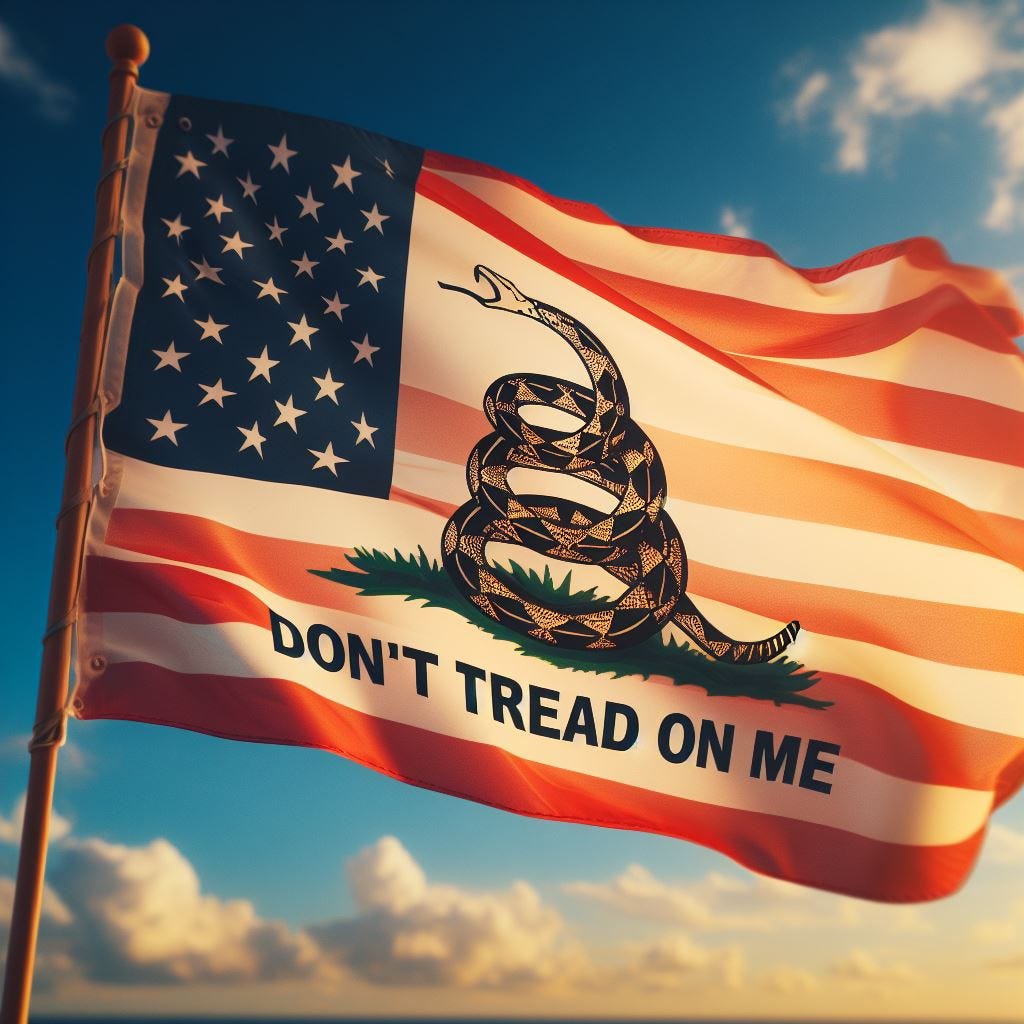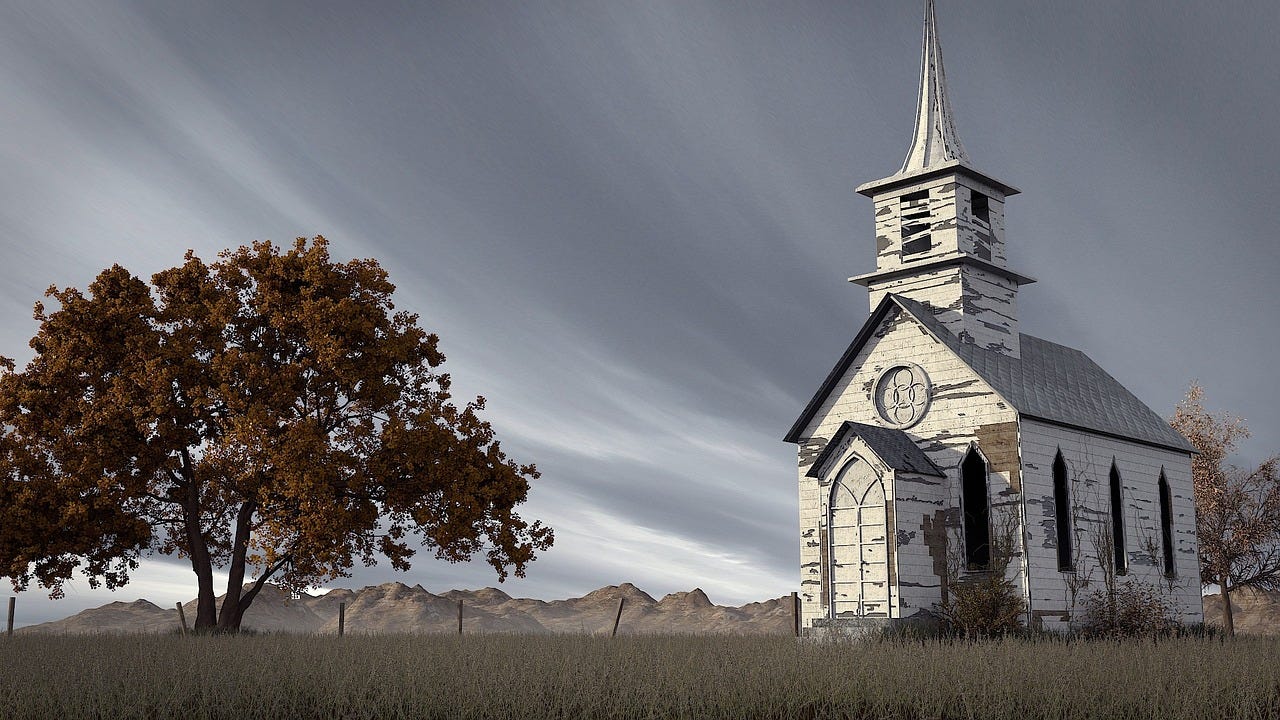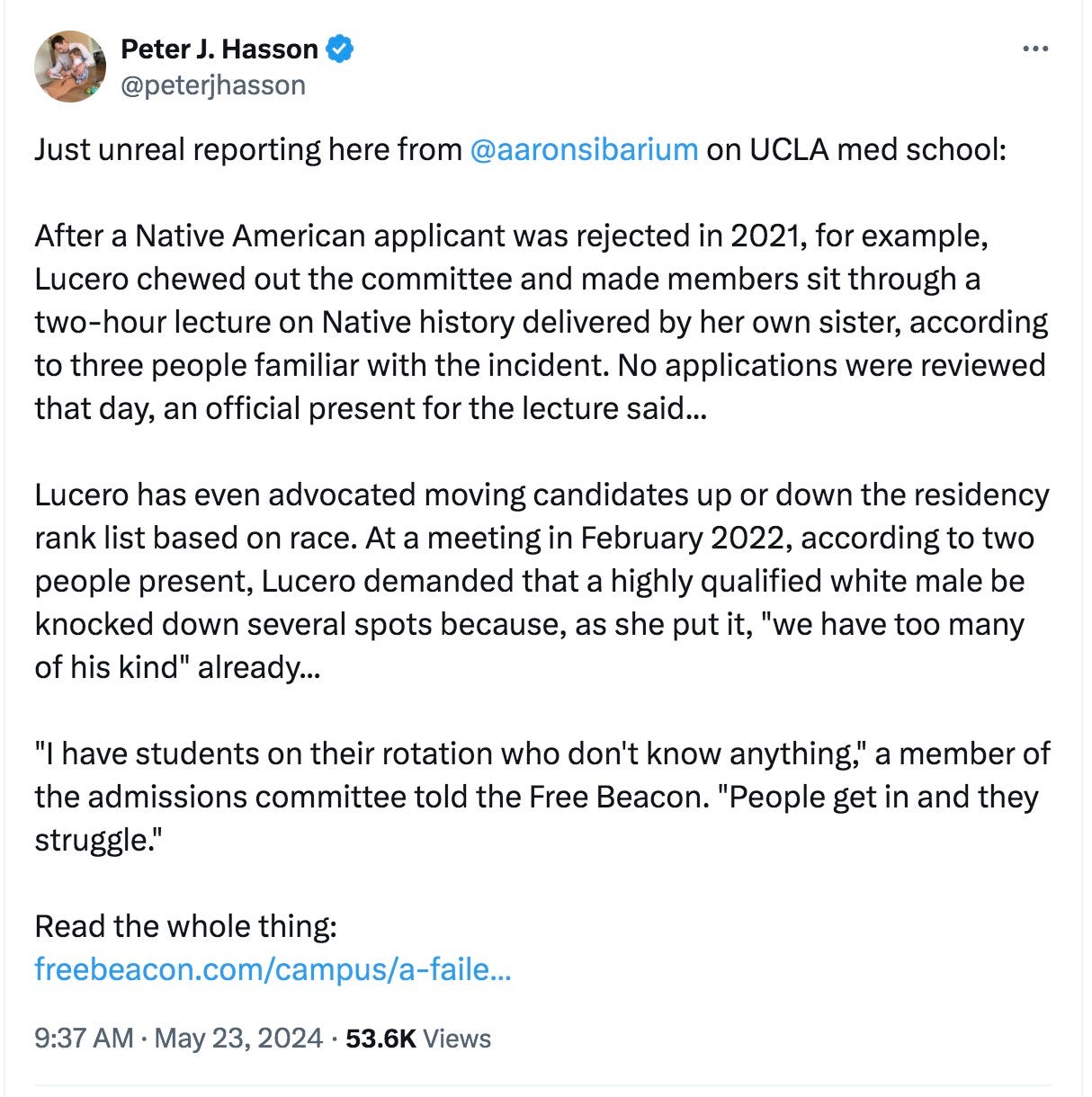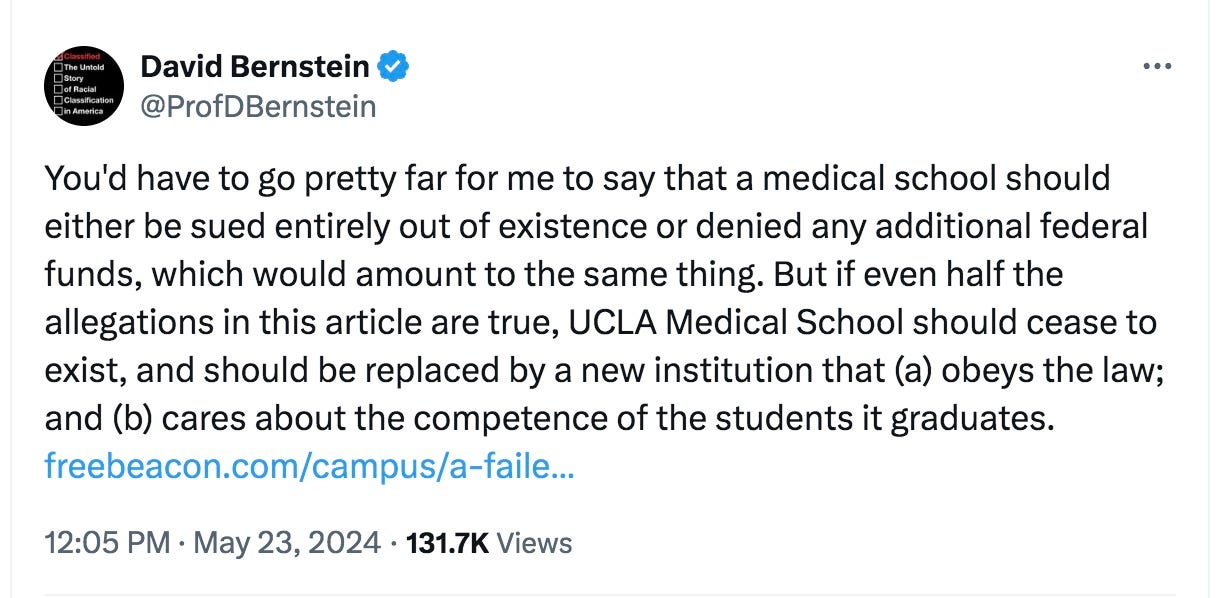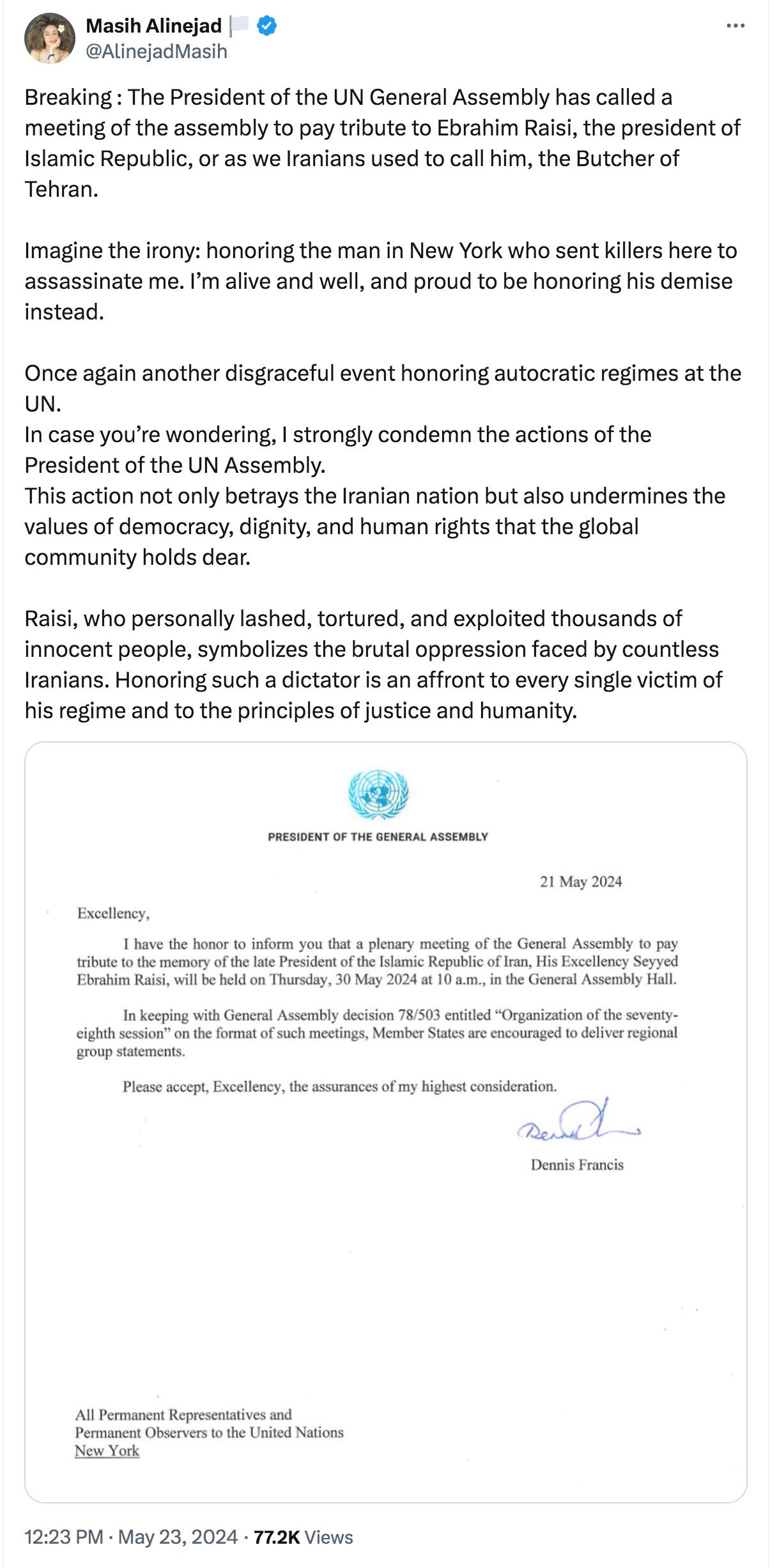E-Pluribus | May 23, 2024
All the king's horses and all the king's men; Libertarianism under the microscope; and the (positive) influence of religion in society.
A round-up of the latest and best musings on the rise of illiberalism in the public discourse:
Eboo Patel: How To Put a Country Back Together
It’s difficult to find individuals who argue that diversity is always or usually bad. Most people appreciate variety in life to some degree or another. But achieving diversity in society is often a divisive process, because the means of doing so and even defining “diversity” can be themselves be difficult challenges. Writing for Persuasion, Eboo Patel doesn’t suggest achieving harmony in society is easy, but he does argue that pluralism is the way.
All across the country it is clear that our diversity is turning into a dangerous divisiveness. In the City Council of Teaneck, New Jersey, a community that has long prided itself on its religious diversity, arguments between Muslim and Jews over the war in the Middle East have ground normal business to a halt and led to skirmishes outside the chambers. In Ithaca, New York a controversy over which identities could be cast in what roles in a high school play led to the entire production being canceled. A few hours away, in Lake Luzerne, arguments between the organizers of Drag Queen Story Hour at the local library and opponents of the event wound up getting so fierce that the library closed altogether. “Nation in turmoil,” “inevitable doom,” loose talk of civil war—this is the language that dominates our discourse today.
And this is precisely why we need our universities to foster pluralism. Pluralism is a particular approach to diversity work. It seeks to bring people together, not tear them apart. It strengthens the civic: those spaces and institutions where people of diverse identities and divergent ideologies engage in concrete activities with common aims that guide cooperative relationships. Simply put, pluralism looks to build bridges where others seek to widen divides.
[. . .]
Pluralism is one of the great needs of our times. We need a sector of our society to model pluralism, and prepare leaders who can help others apply its key principles. I think higher education is that sector. Where else but a residential college campus do you get a wide range of identities converging in a small physical space? The intellectual resources to learn about various traditions? To explore theories of pluralism? To acquire the skills of bridge-building? Where else do you get the civic space to apply what you are learning at virtually the same time that you are learning it?
[. . .]
Here’s an idea for university leaders: Begin by announcing a President’s Fellowship on Pluralism for ten students a year. Be clear about the orientation, the objectives and the aspiration: “If the school board of Burbank or Granbury calls, you’re the people we’re sending. Better be ready.”
Make it a rigorous and competitive process. Stipend it at $5000 or more per year. Bestow it with prestige. Require the students to take an academic course on pluralism with the readings I sketched above. Give a senior faculty member a course release per term to teach the course and run the fellowship.
And that should be just the beginning.
Read the whole thing.
Jon Gabriel: What Libertarianism Gets Wrong
Those tired of being constantly judged or told what to do may find libertarianism an attractive ideology: live and let live! At Discourse Magazine, Jon Gabriel argues that it’s not that simple. A self-declared “cultural libertarian,” Gabriel writes frankly about libertarianism’s flaws and why human nature can never be entirely committed to it.
. . .I've always been a cultural libertarian. A son of the Mountain West, my traditional conservatism is heavily dosed with a “leave me the hell alone” contempt for Washington, Wall Street and anyone else who dares to tell me what to do. It’s more instinct than ideology. When policy wonks argue how government can best solve a problem, I’m the guy in back muttering, “Why should government be involved at all?”
[. . .]
There are as many varieties of libertarian as there are libertarians themselves. To keep it simple, I’ll focus on the more utopian free-marketeers among them. They assert that if people are just left alone, they will make the best rational choices for themselves. This sounds great in theory … until you meet people. Humans possess reason, but they are hardly rational animals.
[. . .]
We all make bad decisions and sometimes revel in them. If any leader says, “You should do X,” lots of people won’t. Why? Some folks are busy, others disorganized, some don’t care, others never get around to it. Then you have a subset that opposes X, whatever it might be.
There are also those who oppose X for no reason at all. Call it the “Wet Paint Effect.” Walk down a hallway and no one touches the wall. Tape a “Wet Paint” sign to it and it will be covered with fingerprints. Including mine.
[. . .]
The primary flaw with libertarianism is its basis in scientific materialism, the belief that the physical world is the only thing that exists. It shares this flaw with communism, downgrading Homo sapiens into Homo economicus. Yes, each theory can be “proved mathematically,” but people are not equations to be solved.
Granted, the policies of Karl Marx do vastly more damage to people and society, but humans cannot be reduced to economic units or confined to a spreadsheet. As Dostoyevsky put it, “the whole work of man really seems to consist in nothing but proving to himself every minute that he is a man and not a piano key.”
[. . .]
With admittedly insincere apologies to Rand and Marx, religion is here to stay. It was present on the plains of Anatolia more than 10 millennia ago and will continue for millennia more. America’s founders understood this well, stressing that the Constitution can only work with a virtuous people.
Art has been around at least as long as faith, revealing humanity’s need to make sense of its time and create beauty. We will sing around campfires, fall in and out of love, and dance for no reason at all—because reason is just one tool in humanity’s arsenal, even though it’s the most easily measured.
Read it all here.
William C. Duncan: Why religion is good for society
Although the founding fathers took religion’s place in society for granted (eschewing only the establishment of, or prohibition of, it by government), many have since come to believe that society now would be better off without faith. William C. Duncan writing at Deseret News could not disagree more.
The role of faith in public life is often hotly contested, especially considering the discouraging number of people who view religion as having a negative, rather than positive, impact on society. But new research from Sutherland Institute provides overwhelming evidence for this key point: Religion fills essential roles that do tremendous good for individuals, families and communities — and it is worthy of support from voters and policymakers.
[. . .]
For many people, terms like religion or faith conjure up images of ceremonial worship, but for believers, religious faith is likely to be understood not only as a vital aspect of personal identity but also of social responsibility. In fact, those who are not affiliated with a church are more likely to interact with religious organizations and people of faith through social services rather than worship services. Sutherland’s new publication catalogs some important examples of how religious groups and those who belong to them provide important services not only to their own adherents but to their neighbors.
Religious groups and people of faith actively provide emergency relief (including the recent pandemic response and assistance to homeless people and refugees), charitable giving, social services (particularly for the elderly, prisoners, vulnerable children, families in need, and the un- and underemployed), and medical care. Some of these contributions, such as those that people of faith and religious organizations provide to foster care, are possibly the most important private contributions to that particular service.
People of faith tend to be more generous in charitable giving, and they have made foundational contributions to health care in the United States (contributions that continue today). This is not to mention disaster response, aid to refugees, prisoner assistance and many other contributions.
While organized religion gets a bad rap in some circles, it provides distinct advantages for facilitating service and care for those in need. People of faith, motivated by the altruism they learn in their congregations and the encouragement they receive from the teachings of their faith, can easily join to magnify their efforts in caring for others. An individual who could do little alone to respond to the plight of prisoners or refugees, when combining their efforts with many others, can make an enormous difference.
Read it all.
Around Twitter (X)
Via Josh Kraushaar and Peter Hasson, an Aaron Sibarium story from the Free Beacon about how UCLA’s medical school is starting to get similar results that some big city public schools have been achieving in math and reading proficiency for years. David Bernstein weighs in as well:
Apparently a moment of silence at the Security Council was not tribute enough by the United Nations for Iran’s late president Raisi, the Butcher of Tehran:
And finally, as William Shakespeare famously wrote, “A quota by any other name…”





